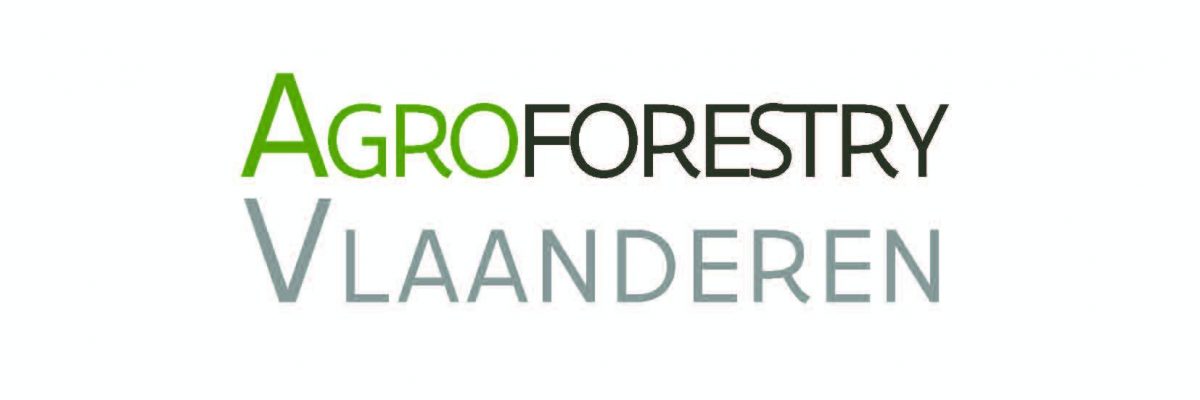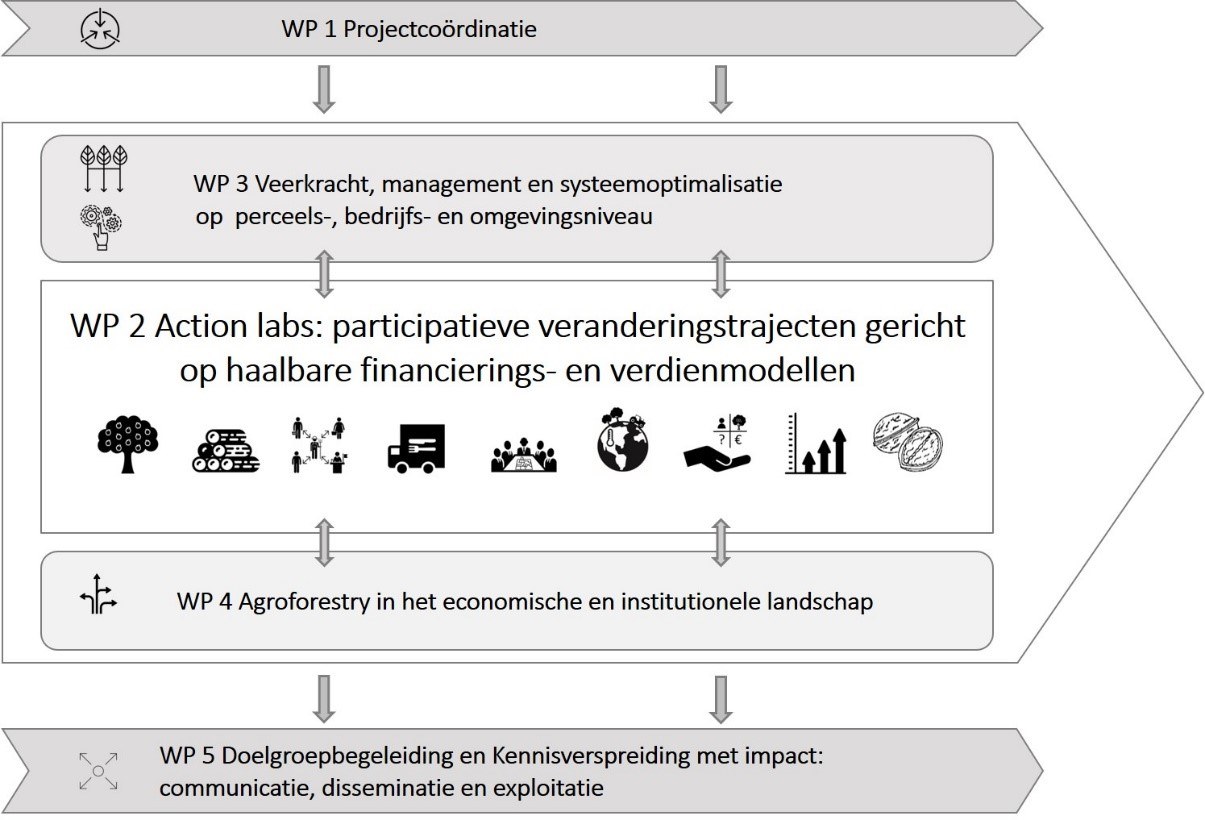Research project Agroforestry 2025

Change trajectories for system optimization and feasible revenue models
Project summary
Agroforestry combines the cultivation of woody crops (trees or shrubs) with agricultural crop and/or livestock production to create new products and services. With a well thought-out approach, agroforestry offers opportunities to respond simultaneously to numerous challenges: increasing business profitability and resilience, creating opportunities for other links in the chain, and helping to preserve and protect biodiversity and natural resources.
The Agroforestry Flanders Consortium, together with many practical partners, has been active in agroforestry since 2010. Through research and direct collaboration with the sector and policy advisors, we respond to the demand for well-founded support for farms demanding concrete help in transitioning into applying agroforestry. We work to facilitate the integration of agroforestry in a wide variety of farms: arable farming systems, free range systems for chicken, pigs or other animals, fruit- or nut orchards with grazing animals, CSA farms, etc. More information via the platform website www.agroforestryvlaanderen.be.
With the new project ‘AGROFORESTRY 2025’, we aim to increase the applicability of agroforestry within the Flemish agricultural sector by optimizing the various facets within this cultivation system, as well as through the screening and development of feasible financing- and revenue models.
The starting point is the need for interaction between development of innovative agroforestry-systems at parcel- and farm level as well as development of innovative business models and arrangements. In other words, both must be developed in tandem; we cannot first develop a business model without knowing without knowing whether farmers are willing and able to deliver the products and services that will be 'traded' in it, and to what extent. Nor can we first develop an agroforestry system at company level, and only then work on a business model to trade the resulting products and services. This project is therefore constructed so that development rests on interaction through the participatory change- or innovation trajectories that run through the project as a common thread. This happens in strong interaction with farmers and other actors, who play a guiding role as project ambassadors. The end result: unlocking the full potential of widely supported, efficient and cost-effective agroforestry systems, in their various forms.

The core of the project is the implementation of a set of concrete, participatory change processes/ trajectories in the form of action labs (WP2), aimed at setting up widely supported and efficient AF-systems, and at feasible and profitable financing- and revenue models. In the development and implementation of these trajectories, the various challenges are taken into account and the very strong interaction with farmers and other players in the chain and environment is given a central place. Engaged farmers will be able to take an active, steering role and act as project ambassadors. This work package will give direction to all other project activities.
At field- and farm level (WP3) we investigate how AF can contribute to resilience, which management is most suitable and how the agroforestry- and farm system can be optimized. Both the tree component (species- and variety choice, growth and quality) as the crop component (new combinations in agroforestry, adapted species- and variety choice, adapted management) are examined. Professional management of the tree strip will receive the necessary attention. Finally, we zoom in on the agro-ecological impact on the natural environment, with special attention to the significance of agroforestry for climate mitigation. In this aspect we study and budget the carbon storage potential of AF in different contexts and scenarios, after which it can be evaluated under which circumstances the potential of AF in terms of mitigation can be maximized.
Extensive attention will be paid to development paths for AF in the economical and institutional landscape (WP4). Efforts are made to move towards a system approach at farm level, with attention for product-specific chain arrangements and marketing systems. Actors that might play an important role as catalysts and can create leverage are actively involved.
In addition, we are also fully committed to the spread of knowledge via communication, dissemination and exploitation (WP5).
Contact: bert.reubens@ilvo.vlaanderen.be - www.agroforestryvlaanderen.be

